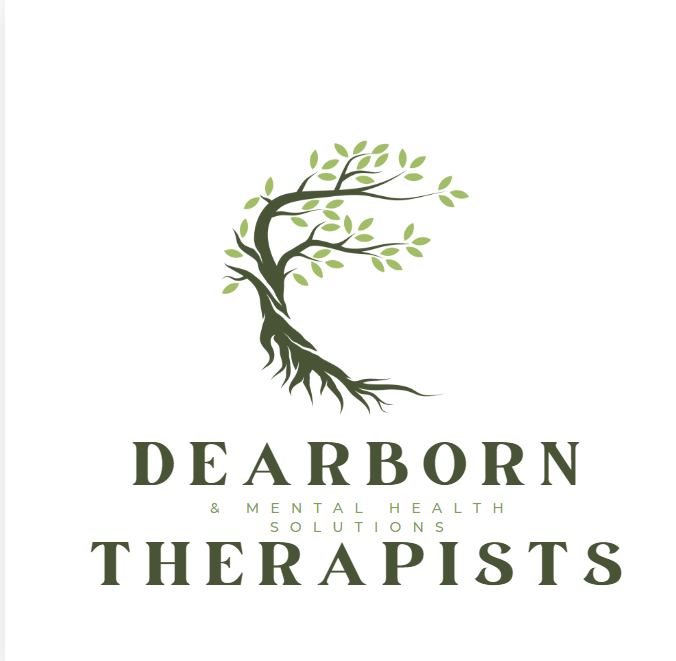Understanding Treatment-Resistant Depression: How TMS Can Help
Treatment-Resistant Depression: How TMS Offers New Hope

Treatment-Resistant Depression: How TMS Offers New Hope
Depression is a serious mental health condition that affects millions of people worldwide. While many individuals find relief through therapy, medication, or a combination of both, some struggle to achieve lasting results from these traditional treatments. This condition is known as treatment-resistant depression (TRD), and it can be incredibly challenging for those who experience it. However, there is hope—Transcranial Magnetic Stimulation (TMS) has emerged as a promising option for individuals who haven't found success with standard depression treatments.
What is Treatment-Resistant Depression (TRD)?
Treatment-resistant depression occurs when someone with major depressive disorder (MDD) does not respond to at least two different antidepressant medications taken at the appropriate doses for an adequate period of time, typically several weeks or months. For those dealing with TRD, the ongoing symptoms of depression may include:
- Persistent feelings of sadness or hopelessness
- Loss of interest in activities they once enjoyed
- Fatigue or low energy
- Difficulty concentrating or making decisions
- Changes in sleep patterns (insomnia or excessive sleeping)
- Feelings of worthlessness or guilt
Living with TRD can be frustrating, especially when multiple treatments fail to bring relief. This is where exploring alternative options like TMS can make a significant difference.
How TMS Can Help with Treatment-Resistant Depression
Transcranial Magnetic Stimulation (TMS) is a non-invasive procedure that uses targeted magnetic pulses to stimulate specific areas of the brain that are underactive in people with depression—most notably, the prefrontal cortex, which is involved in mood regulation.
TMS is FDA-approved for the treatment of depression and is particularly useful for those who have not had success with antidepressant medications or psychotherapy. The process is painless, and patients remain fully awake during the treatment. Here’s how TMS can help:
- Stimulates Brain Activity: TMS works by sending magnetic pulses through the skull to the brain's mood-regulating areas. These pulses help activate neurons that may not be functioning properly in individuals with depression, improving mood and overall brain function.
- Non-Invasive and Safe: Unlike more invasive treatments, such as electroconvulsive therapy (ECT), TMS does not require anesthesia or lead to memory loss. Patients typically experience few, if any, side effects beyond mild discomfort at the treatment site.
- Outpatient Procedure with No Downtime: TMS sessions typically last 30-40 minutes, and most patients can resume their regular daily activities immediately afterward. Sessions are usually scheduled five days a week for several weeks, depending on individual treatment plans.
- Effective for Treatment-Resistant Depression: Numerous studies have shown that TMS can significantly reduce symptoms in individuals with TRD. Approximately 50-60% of people who undergo TMS experience an improvement in their depressive symptoms, with many achieving full remission.
What to Expect During TMS Treatment
If you're considering TMS, it's natural to wonder what the treatment process will be like. Here’s what you can expect:
- Consultation: The first step is a thorough consultation with a mental health professional who will assess your medical history, current symptoms, and previous treatment responses. This helps determine if TMS is a suitable option for you.
- Personalized Treatment Plan: Once TMS is deemed appropriate, a customized treatment plan will be developed. The number of sessions and their frequency will depend on the severity of your depression and how you respond to the treatment.
- During the Procedure: During each session, you will sit in a comfortable chair while the magnetic coil is placed gently against your head. The machine will deliver a series of magnetic pulses, and you may feel a tapping sensation on your scalp. Most patients find the procedure painless, though some experience mild discomfort at first.
- Post-Treatment: After each session, you can return to your daily activities without any restrictions. Some patients may feel a noticeable improvement in their symptoms after just a few sessions, while others may take longer to see results.
Is TMS Right for You?
If you’ve tried multiple antidepressants, therapy, or other forms of treatment without success, TMS may be a beneficial option. It’s important to consult with a mental health professional who is experienced in administering TMS to assess whether this treatment is appropriate for your specific situation.
While TMS is a promising treatment, it’s not a solution for everyone. However, for those struggling with treatment-resistant depression, TMS can be a game-changer, offering hope where other treatments have failed.
Holistic Support for Depression
In addition to TMS, it’s important to approach depression treatment from a holistic perspective. Incorporating therapy, such as Cognitive Behavioral Therapy (CBT) or Dialectical Behavior Therapy (DBT), along with TMS can help reinforce long-term recovery. Building healthy habits such as regular exercise, mindfulness practices, and proper nutrition can also improve overall mental health outcomes.
Conclusion
Treatment-resistant depression can feel overwhelming, but there are advanced, effective treatments like TMS that provide hope and relief for many. If you or a loved one are struggling with depression that hasn’t responded to traditional treatments, consider reaching out to a mental health provider to discuss whether TMS might be the right option for you.
At Dearborn Therapists and Mental Health Solutions, our experienced team is dedicated to helping you explore all available options for managing your depression. Contact us today to learn more about how TMS can be integrated into your treatment plan and take the next step toward healing.
